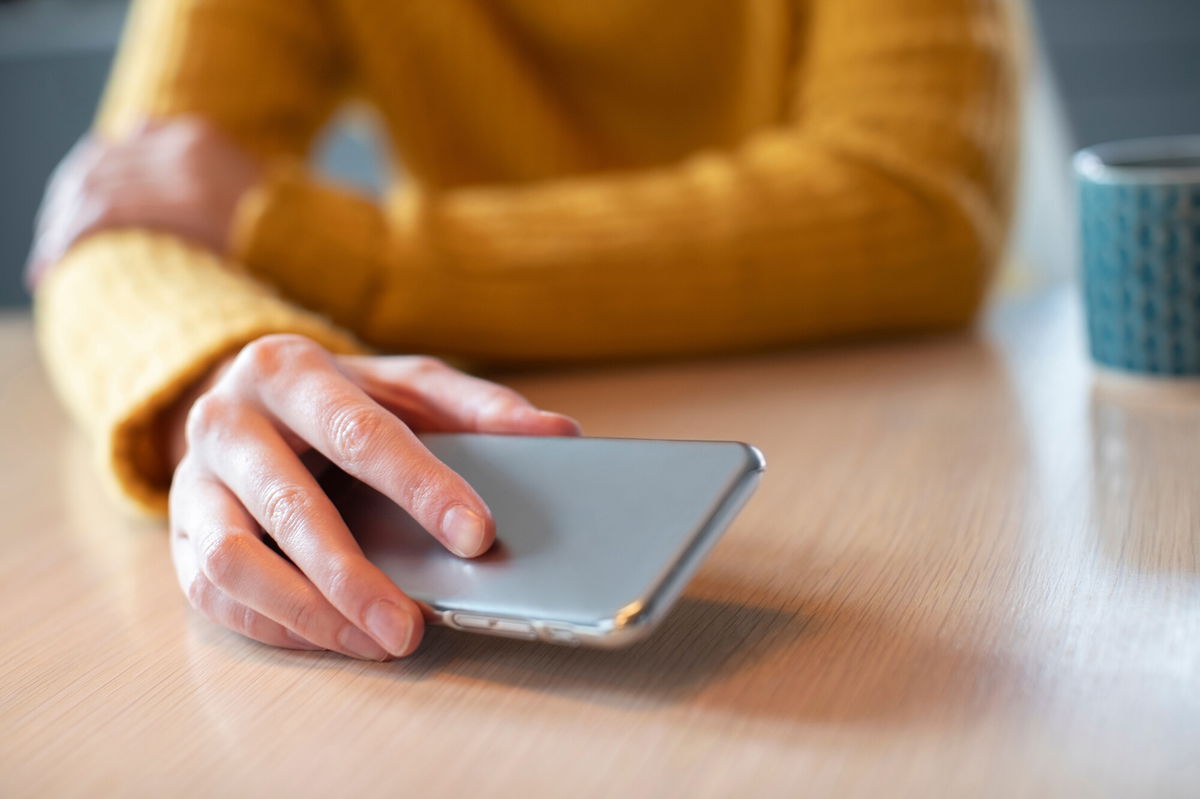My ‘dry’ January: What I learned from a month without social media

Social media can provide your brain with a stream of dopamine
By Jacque Smith, CNN
I deleted Instagram and TikTok. I logged out of Facebook and Twitter. I vaguely remembered I still had a Snapchat account and removed it from my app library before I put my phone down.
Then I took a deep breath.
It was January 1, 2022, and my New Year’s “micro-resolution” was to give up social media for a month. I called it my “dry” January. (Let’s be honest — with the Omicron variant raging last month, giving up alcohol was out of the question.)
I knew I would still need to log into my social accounts to view videos for work. But I wanted — and maybe needed — the incessant, absent-minded scrolling on social media to stop.
Thirty days later, here’s what I learned.
Scrolling is an addiction
It was compulsory. During the first week of January, I picked up my phone at least once an hour for no other reason than to scroll through my social media feeds. With the apps no longer available to open, I’d hesitate with my thumb hovering over the home screen, unsure of what to do next.
Simply putting down the phone seemed like admitting defeat. Surely there was something else I used this device for every three minutes. I could look through my camera roll to see what I’d been up to the last few days. Or peruse the CNN app. Usually I scrolled through already-read work emails to make sure I hadn’t missed anything important.
Does this sound sad? It felt sad to me.
Scientists have told us for years that social media can provide your brain with a steady stream of dopamine, a brain chemical that influences your mood. Dopamine rewards us for pleasurable behavior and encourages us to do more of it. Not surprisingly, dopamine is also the main neurotransmitter involved in addiction.
Phone addiction isn’t yet a medical diagnosis. But I didn’t like the feeling of not being able to control the impulse. And while after a few weeks I picked up my phone less, the phantom feeling of something I used to do all the time lingered.
You can get a lot done in a few minutes
I once read a book called “168 Hours: You Have More Time Than You Think” by Laura Vanderkam. Turns out, it’s true — especially if you give up social media.
Throughout the month, I took advantage of pockets of time that I used to spend scrolling to check off my to-do list. Moments waiting for the train were spent finishing the last chapter of my book club book. If I had five minutes before I was going to meet some friends, I loaded the dishwasher. Standing in line at the grocery store, I scheduled a repair man to fix our condo lock. It was amazing what I could get done in short bouts of time when I had nothing else to distract me.
Real friendships take time
My husband was away on a monthslong work trip over the holidays, and when he came home, I wanted to shout it from the rooftops. Too bad those rooftops had been dismantled. One by one, I sent text messages to his mom and my mom and my coworkers and our mutual friends. Several cramped fingers later, I was done.
This is not me complaining. I’m incredibly grateful to have a supportive network of family and friends. But cultivating those relationships outside of the fake social media world takes time and energy. I called and asked how they were doing, instead of just swiping through their stories. I set up dinner dates instead of sitting on my couch looking at their dinner from afar. Over time, I learned which friendships I would dedicate that energy to, who would give it back to me, and which friends were mostly online acquaintances.
To be clear, I need both kinds of friends. I need the ones who send me memes at 1 a.m. (how I missed the memes!) and I need the ones I can call at 1 a.m. when missing my husband something fierce. A month without social media just reminded me how important it is to prioritize spending time with my favorite people in real life.
Daydreaming is a decent pastime
Social media isn’t all bad. Yes, I follow people who do stupid stunts and strangers who rant about their political views. But I also love to follow travel photographers, tiny-house advocates, and DIYers who are all more creative than I will ever be. I follow one 75-year-old weight lifter on Instagram who could kick my ass. (Apparently 35 is too soon to give up and embrace the sofa *insert shrug emoji*)
These people inspire me. They help me picture a world in which I live in 250 square feet without murdering my husband at the foot of a mountain range in Italy, next to a turquoise lake where I paddleboard daily to keep up my six-pack abs, while waiting for the paint to dry on my latest craft project.
Without social media, I lost some of those daydreams. That too, was sad.
Now that it’s February, I’m bringing a few of the apps back. I could use the extra dopamine … and the occasional distraction from the real world.
I am going to disconnect from the ones that often drag me into dark holes of discourse. And try to tackle my to-do list before I scroll (hey, I found time to write this article).
I’m also going to be intentional about making plans to see the people I care about in person, often. As much as I love the memes, that kind of IRL connection can’t be beat.
The-CNN-Wire
™ & © 2022 Cable News Network, Inc., a WarnerMedia Company. All rights reserved.